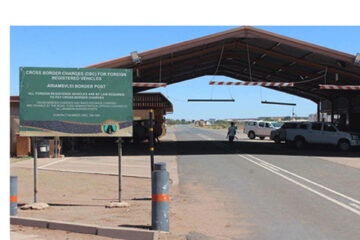Niël Terblanché
The Ministry of Health and Social Services (MoHSS) announced that it has intensified its surveillance and preparedness measures in response to the declaration last week of Mpox as a public health emergency of international concern by the World Health Organization (WHO).
This declaration followed the Africa Centres for Disease Control and Prevention (Africa CDC) classifying Mpox as a public health emergency of continental security which called for urgent coordinated public health responses across the continent.
Ben Nangombe, the executive director of MoHSS in a statement on Tuesday, said that Namibia has not yet detected any suspected or confirmed cases of Mpox.
He gave the assurance that the ministry is taking proactive steps to ensure the country is well-prepared should the virus emerge within its borders.
“The ministry is taking proactive steps to monitor and detect the virus by enhancing surveillance to identify potential cases early, ensuring prompt response and treatment as well as engaging stakeholders and collaborating with healthcare providers, communities, and international partners to establish effective communication and resource distribution,” he said.
According to Nangombe, the ministry, will at the same time, engage actively in educating the public about Mpox transmission, symptoms, and preventive measures while also ensuring that communities are well-informed and more resilient.
He urged members of the public to remain calm and to avoid spreading misinformation about the virus.
He reassured the nation that the ministry is fully committed to safeguarding public health and will continue to keep the public informed as the global situation evolves.
Mpox, a zoonotic disease caused by an orthopox virus, has seen a substantial surge in cases globally and particularly within Africa.
The virus causes symptoms similar to smallpox.
It was first identified in monkeys in 1958 and later in humans in 1970 in the Democratic Republic of the Congo.
Over the past few months countries on the African continent witnessed an unprecedented increase in Mpox cases, with more countries reporting infections, including nations that previously had minimal or no cases.
Since January 2024, African health authorities have reported over 14 250 confirmed cases and 456 deaths, with the Democratic Republic of the Congo accounting for more than 90% of these cases.
Nangombe said that the situation has been further complicated by the emergence of a new variant in September 2023, now circulating in countries such as Rwanda, Uganda, and Kenya.




